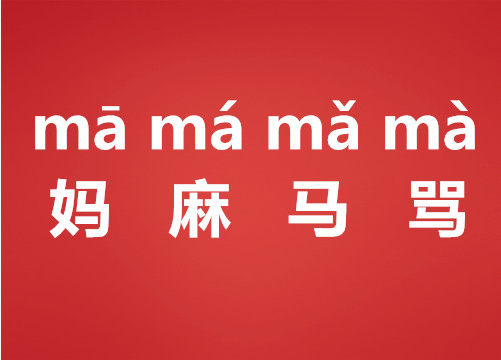Harmonizing Your Chinese Name: A Guide to Tonal Balance and Euphony
1.Introduction: More Than Words – The Musicality of a Chinese Name
You've diligently researched and perhaps even found Chinese characters with beautiful, profound meanings that resonate deeply with you for your new Chinese name. That's a wonderful and crucial step! But have you paused to consider how your chosen name actually sounds when spoken aloud? In Mandarin Chinese, a beautifully intricate tonal language, the melody and rhythm of a name can be just as significant as the meaning it conveys.
Welcome to the concept of euphony (悦耳动听 - yuè'ěr dòngtīng) in Chinese names – the idea that a well-crafted name "sings." It possesses a pleasing rhythm, a harmonious flow, created by the sophisticated interplay of Mandarin's tones. For native speakers, who are highly attuned to these tonal patterns from birth, a name with awkward or clashing tones can sound jarring, flat, or even be slightly more difficult to understand or remember. Conversely, a tonally balanced and melodious name is perceived as elegant, memorable, and simply a pleasure to hear.
This guide aims to demystify the often-overlooked role of tones in the Chinese naming process. We'll help you understand the basics of tonal balance and offer insights into creating a name that is not only rich in meaning but also delights the ear and rolls smoothly off the tongue – both yours and those of the native speakers you'll interact with.

2.A Quick Refresher: The Four Main Tones of Mandarin Chinese (and the Neutral Tone)
Before we dive into tonal harmony within names, let's have a very brief recap of the tones in Mandarin Chinese. If you're learning Mandarin, this will be familiar, but a quick reminder never hurts!
Mandarin Chinese has four main tones, which are essentially different pitch contours applied to a syllable. These tones are critical because they distinguish the meaning of words that might otherwise sound identical.
- Tone 1 (High Level, 阴平 - yīn píng): A high and level pitch. Represented by a macron above the vowel in Pinyin (e.g., mā).
Example: 妈 (mā) – mother - Tone 2 (Rising, 阳平 - yáng píng): A pitch that rises from mid-level to high. Represented by an acute accent (e.g., má).
Example: 麻 (má) – hemp, flax; numb - Tone 3 (Falling-Rising, 上声 - shǎng shēng): A pitch that dips down and then rises. Represented by a caron/hacek (e.g., mǎ).
Example: 马 (mǎ) – horse - Tone 4 (Falling, 去声 - qù shēng): A pitch that falls sharply from high to low. Represented by a grave accent (e.g., mà).
Example: 骂 (mà) – to scold, to curse - Neutral Tone (轻声 - qīng shēng): Some syllables are pronounced lightly and without a distinct tonal contour. They are often unstressed and take their pitch from the preceding syllable. No tone mark is used in Pinyin.
Example: 吗 (ma) – question particle (as in 你好吗? Nǐ hǎo ma?)

Remember, these tones are not optional accents; they are integral to the meaning of each syllable. This is why they play such a vital role in how your Chinese name is perceived.
3.The Quest for Tonal Balance in Your Chinese Name
When Chinese characters are combined to form a name (typically a one-character surname followed by a one- or two-character given name), their individual tones interact to create an overall "tonal melody." Achieving a pleasing balance in this melody is highly desirable.
Why is Tonal Balance So Important?
- Avoids Monotony: A name where all characters have the same tone (e.g., all first tones or all fourth tones) can sound flat, overly emphatic in one direction, or lacking in dynamism.
- Prevents Awkwardness: Certain tonal combinations can be more challenging to pronounce smoothly. For example, a sequence of multiple third tones often requires specific phonetic adjustments ("third tone sandhi"), which, if too many occur, can make the name feel a bit heavy or clunky.
- Creates a Pleasing Cadence: A well-balanced tonal pattern results in a name that flows naturally, has a pleasant rhythm, and is generally more aesthetically pleasing to the ear. It sounds more "polished."
General Guidelines for "Pleasing" Tonal Patterns (Not Strict Rules):
While there are no unbreakable laws, certain tonal patterns are often perceived as more harmonious or dynamic. These are general observations, and many beautiful names exist outside these common patterns:
- Alternating Tones: Combinations like a first tone followed by a second (1-2), a second by a fourth (2-4), or a fourth by a first (4-1) often create a nice, undulating rhythm.
- Rising then Falling (or vice-versa): A sequence like 2-4 (rising then falling) or 4-2 (falling then rising) can create a satisfying sense of movement and resolution.
- The "Middle Ground" of Second Tones: Second (rising) tones are often considered versatile and can pair well with many other tones, adding an uplifting quality.
Examples (Surname Tone + Given Name Tones):
- If your surname is Lǐ (李 - 3rd tone):
Lǐ Míngyuǎn (李明远 - 3-2-3, becomes 3-2-2 in speech due to sandhi if 明远 is a unit, or 2-2-3 if 李明 is a unit – complex, but shows interaction!)
Lǐ Míngxuān (李明轩 - 3-2-1) which has a very clear and pleasant 2-1 lift.
Lǐ Jiāhuì (李嘉慧 - 3-1-4) - This 1-4 combination in the given name often sounds good. - If your surname is Wáng (王 - 2nd tone):
Wáng Yǔxīn (王雨欣 - 2-3-1) - The 3-1 in the given name gives a nice dip and rise.
Wáng Zǐháo (王子豪 - 2-3-2) - Can be quite heroic sounding.
Things to Be Mindful Of:
- Too Many Consecutive Third Tones: While third tone sandhi helps, a name like Mǎ Xiǎoyǔ (马晓宇 - 3-3-3) would typically be pronounced closer to "Má Xiáoyǔ" (2-2-3). While manageable, it can feel a bit "bouncy" if overdone.
- A String of Identical Tones: For example, Zhāng Zhāngzhāng (张张张 - 1-1-1) would sound extremely flat. While an exaggerated example, even two identical tones can sometimes lack dynamism if not carefully considered with the meaning.
The Role of Your Surname's Tone:
The tone of your chosen Chinese surname (if you adopt one) effectively sets the "keynote" for your full name's melody. The tones of your given name characters will then harmonize (or clash) with this initial tone.

4. Beyond Individual Tones: Rhythm, Stress, and Overall Flow
While individual tones are the building blocks, the overall phonetic appeal of your Chinese name also involves broader rhythmic qualities:
- Syllable Count and Rhythm: Most Chinese given names are one or two syllables. When combined with a typically one-syllable surname, this results in a full name of two or three syllables. This length naturally lends itself to a comfortable rhythm in Mandarin speech. Four-syllable names (e.g., two-character surname + two-character given name) are less common for Han Chinese but do exist and have their own cadence.
- Natural Stress Patterns: Although Mandarin is often described as syllable-timed rather than stress-timed like English, there are subtle, natural stress patterns in spoken phrases, including names. Usually, in a two-character given name, the second character might receive slightly more emphasis or be pronounced with a bit more clarity, though this is nuanced.
- The "Feel" of the Name: Consider the overall phonetic impression. Does it sound crisp and energetic, or soft and flowing? The types of consonant and vowel sounds in your chosen characters (e.g., open vowels vs. nasal endings, plosive vs. fricative consonants) contribute to this "feel," alongside the tones.
- Listen, Don't Just Analyze: It's easy to get lost in Pinyin charts and tonal rules. But language is living. The best way to understand good name phonetics is to listen to how native speakers pronounce names – their own, and those of others. Notice the rhythm, the slight pauses, the overall melody.
Of course, the meanings of your characters are paramount. If you're looking for inspiration, explore our Top 10 Meaningful Chinese Characters for Your Name!
5. Practical Tips for Achieving a Harmonious Sounding Name
- Say it Out Loud (A Lot! And in Context!): This is the single most important tip. Don't just look at the Pinyin. Say your potential full Chinese name (surname + given name) repeatedly. Try saying it in a sentence: "你好, 我是 [Your Chinese Name]." (Nǐ hǎo, wǒ shì [Your Chinese Name]).
- Record Yourself Speaking the Name: Use your phone or computer to record yourself. Listen back critically. Does it flow well? Are there any parts that feel awkward to pronounce, or where you stumble on the tones?
- Get Native Speaker Feedback (Absolutely Crucial for Sound!): This is where theory meets reality. Ask several native Mandarin speakers (if possible, from different regions, though Standard Mandarin is the key) to pronounce your shortlisted names. Listen very carefully to their intonation, rhythm, and tonal accuracy. Specifically ask them: "Does this name sound good/smooth/harmonious to you? Are there any parts that sound awkward or are difficult to say clearly? Does it remind you of any other words or phrases?"
- Utilize Online Pinyin Tools with Audio: Many excellent online dictionaries (like Pleco, YellowBridge, or Youku videos teaching Pinyin for specific characters) provide audio pronunciations for individual Chinese characters and their Pinyin syllables. This is invaluable for hearing the correct tones.
- Consider Using a Name Generator as a Starting Point for Sound Assessment: While a name generator's primary strength might be character selection based on meaning, a good one, like www.getchinesename.me, will always provide the Pinyin for its suggestions. You can use this Pinyin to analyze the tonal patterns of names whose meanings you find appealing. This helps you shortlist names that are both meaningful and have potentially good tonal structures.
- Don't Aim for "Perfect" Tonal Rules – Aim for "Pleasing" and "Natural": While we've discussed common pleasing patterns, remember these are guidelines, not unbreakable laws. Many beautiful and beloved Chinese names might have less common tonal sequences. The ultimate test is whether the name sounds natural, is easy for native speakers to say and understand, and feels good to you. If a name has profound meaning for you and native speakers find it acceptable and pleasant (even if not "textbook perfect" in its tones), that's what truly matters.
6.When Meaning Might Gently Trump "Perfect" Tones (A Balanced Perspective)
Occasionally, you might fall in love with a Chinese character that has an incredibly fitting, powerful, and unique meaning for you, but its tone creates a slightly less "ideal" or "textbook perfect" melodic flow when combined with your chosen surname or another character in your given name.
In such instances, a slight compromise on absolute tonal euphony might be acceptable if the meaning is truly compelling and the overall name isn't actively jarring, offensive-sounding, or exceptionally difficult to pronounce. This is a nuanced judgment call. The goal is overall harmony and positive reception. If the name still sounds generally good and its meaning is powerful, native speakers will often appreciate the depth of thought more than a theoretically "perfect" but less meaningful tonal sequence. Again, this is where candid feedback from native speakers is invaluable.
7.Conclusion: Let Your Chinese Name Resonate Beautifully
Choosing a Chinese name is a delicate and rewarding art form, one that beautifully balances profound, soul-stirring meaning with a sound that is pleasing to the ear. While the carefully selected characters give your name its heart and soul, it is the interplay of tones and the resulting rhythm that gives your name its unique voice – a voice that will introduce you, represent you, and serve as a melodious bridge connecting you to others.
By paying thoughtful attention to tonal balance and the overall euphony of your chosen name, you ensure that it will not only be understood but also genuinely appreciated for its elegance and pleasant sound by native Chinese speakers. This considered approach adds another layer of depth to your choice and demonstrates a sincere appreciation for the subtle musicality inherent in the Mandarin language.
So, as you continue your exciting journey of exploring Chinese characters and their rich meanings, remember to also listen to your potential names. Let them flow from your tongue. Seek out how they resonate with the ears of others.
Ultimately, aim to find a name whose meaning speaks directly to your heart, and whose sound creates a beautiful, lasting first impression. Start your journey towards a truly harmonious Chinese name today!
For more comprehensive guidance on all aspects of choosing your name, including cultural nuances and character selection, don't forget to consult our master resource: The Ultimate Guide to Getting Your Perfect Chinese Name.